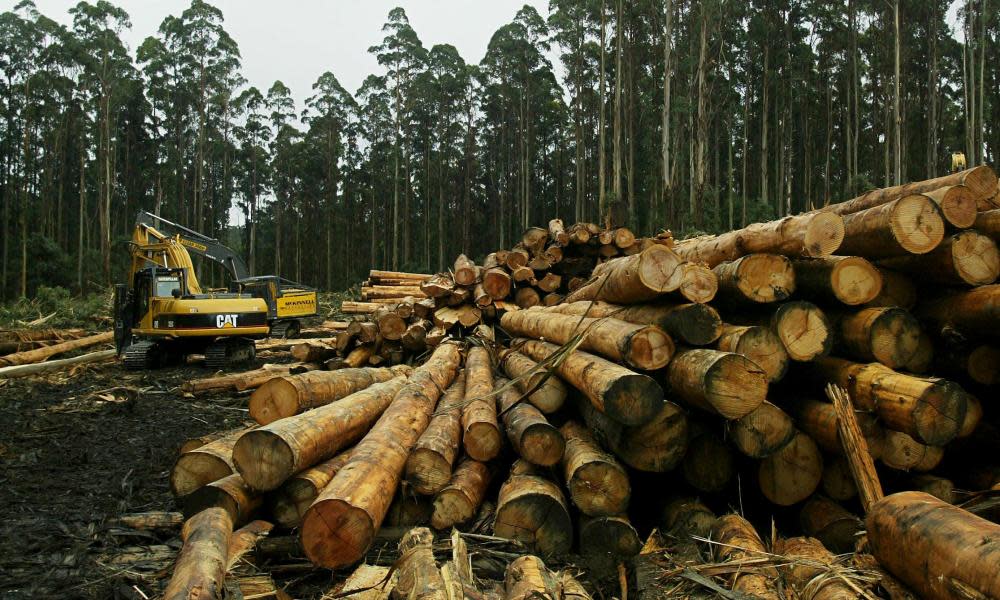Court challenge to logging in Victorian highlands could have national impact

Green groups are challenging the validity of a Victorian forestry agreement in the federal court in a case that could have repercussions for the Australian logging industry as a whole.
Environmental Justice Australia, acting on behalf of Friends of the Leadbeater’s Possum, has argued that the regional forest agreement covering Victoria’s central highlands region, which is home to the critically endangered possum, is invalid because the Victorian government failed to perform the requisite reviews.
The challenge comes as conservationists have called for a moratorium on logging in 100,000 hectares (247,105 acres) of mountain ash forest in central Victoria, a move they say is necessary to save the Leadbeater’s possum from extinction and the forest from total ecosystem collapse.
Regional forest agreements are a system of forest management introduced in the 1990s to try to resolve conflict between foresters and environmentalists.
They are struck between the commonwealth and the relevant state or territory government, which is required to conduct a performance review of the 20-year deal every five years.
The central highlands RFA was signed in 1998. Instead of a five-yearly review, the Victorian government produced a combined five- and 10-year review of the five RFAs operating in the state, which was published in 2009.
The third five-year review was published in 2015.
In a two-day hearing before federal court judge Debbie Mortimer that began in Melbourne on Thursday, Environmental Justice Australia will argue that the failure to produce five-yearly reports meant the RFA was invalid and,in the absence of that agreement, logging and other activities in the mountain ash forests was subject to environmental laws, such as the Environment Protection and Biodiversity Conservation (EPBC) Act 1999.
Currently, RFAs are exempt from the EPBC Act.
The EPBC Act requires significant mitigation for any action that may impact upon a listed species, like the critically endangered Leadbeater’s possum or vulnerable greater glider, which both rely on the old-growth mountain ash forests of the central highlands.
If logging in the central highlands was found to be not protected under an RFA, it may not be allowed to continue.
Mortimer granted an injunction in November, halting logging in 43 central highlands forestry coupes until after the case was heard.
The Victorian and commonwealth governments joined the case as interested parties this month. They will argue, along with lead defendant, VicForests, that the agreement is valid.
There are five current RFAs in Victoria, covering the central highlands, east Gippsland, Gippsland, the north-east and the west.
There are also three in New South Wales, covering Eden, the north-east, and the southern district, and one each in Western Australia and Tasmania.
All four states have similar reporting practices. If the central highlands agreement is found to be invalid it could undermine the validity of all except the Tasmanian agreement, which was rolled over this year.
According to the RFA reports, which are published by the federal Department of Agriculture and Water Resources, none of the four states produced regular reviews that actually commenced at five-year intervals. Both NSW and WA produced at least one combined review, similar to the Victorian review, and Tasmania has not lodged a review since its 10-year review in 2006.
The RFA process has long been criticised by environmentalists, who say they have allowed unsustainable logging practices and that their threatened species protection was “grossly inadequate.”

 Yahoo News
Yahoo News 
